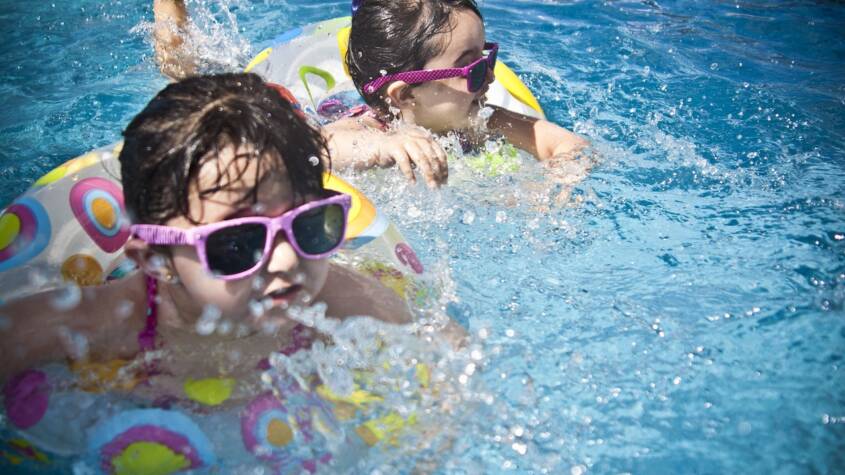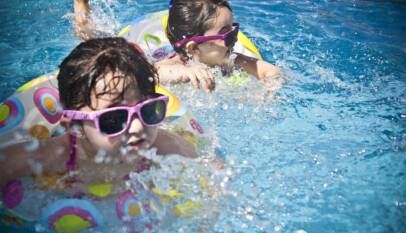
Many adults avoid swimming due to fear or lack of experience, but it’s never too late to learn. Swimming lessons for adults can build confidence, improve safety, and provide essential life skills. Whether for fun, fitness, or personal safety, these lessons cater to various skill levels and needs.
Classes typically focus on technique, breathing, and water safety, ensuring that participants can navigate the water with ease. Learning in a supportive environment fosters progress and encourages adults to conquer any trepidation. By joining a structured program, they gain the tools to enjoy swimming while promoting a healthier lifestyle.
Finding the right instructor or program is crucial for success. Many facilities offer tailored lessons that address specific goals, from basic skills to advanced techniques. Adult swimming lessons not only teach swimming but also create a community of learners who share similar aspirations and challenges.
Benefits of Swimming for Adults
Swimming provides numerous advantages for adults, impacting both physical fitness and mental well-being. Engaging in swimming lessons can also foster social connections and provide recreational opportunities.
Physical Health Benefits
Swimming is an excellent full-body workout. It engages various muscle groups while being low-impact, making it suitable for individuals of all fitness levels.
- Cardiovascular Health: Regular swimming improves heart and lung function. It increases endurance and promotes overall cardiovascular fitness.
- Muscle Strength and Flexibility: The resistance of water helps build muscle strength. This activity increases flexibility and joint mobility, which is vital as one ages.
- Weight Management: Swimming can help burn calories, aiding in weight control. Based on intensity, adults may burn between 400 to 700 calories per hour.
Mental Health Advantages
The act of swimming can also enhance mental health. This activity not only helps reduce stress but also improves mood.
- Stress Relief: The repetitive motions and water’s calming nature can alleviate anxiety. Many find swimming to be a meditative practice.
- Cognitive Benefits: Engaging in regular physical activity, like swimming, enhances cognitive function. It can improve memory and promote better focus.
- Boosting Self-Esteem: Learning new swimming techniques can increase confidence. Achievements in swimming can contribute positively to self-image.
Social and Recreational Aspects
Swimming can be a social activity, offering opportunities to connect with others. Group lessons or club memberships encourage interaction.
- Building Community: Joining a swimming class fosters a sense of belonging. Adults can meet like-minded individuals, enhancing their social network.
- Family Bonding: Swimming can be a family-friendly activity. Parents often participate in lessons with their children, promoting quality time together.
- Recreational Enjoyment: Beyond exercise, swimming can be a fun, relaxing pastime. Adults may enjoy recreational swimming at pools, lakes, or beaches, enhancing their leisure activities.
Learning to Swim as an Adult
Adult swimming lessons provide a structured way to build confidence and skills in the water. This process involves finding the right swim school, mastering basic techniques, overcoming fear, and tracking progress towards individual goals.
Choosing the Right Swim School
Selecting an appropriate swim school is crucial for adult learners. Look for facilities that offer specialized adult classes, as they cater to specific needs and comfort levels.
Key factors to consider include:
- Instructor Credentials: Ensure instructors are certified and have experience teaching adults.
- Class Size: Smaller classes allow for personalized attention and feedback.
- Facilities: Look for clean, well-maintained pools and convenient scheduling options.
- Reviews and Recommendations: Research online reviews or ask for referrals from friends or family.
Finding a suitable school can significantly enhance the learning experience.
Basic Swimming Techniques
Adult learners should focus on mastering fundamental swimming techniques.
Essential skills include:
- Floating: Learning how to float is foundational. It builds comfort and stability in the water.
- Breathing: Proper breathing techniques are vital. This includes learning to inhale and exhale rhythmically while swimming.
- Stroke Basics: Start with simple strokes like freestyle and backstroke. These strokes are easier to learn and may boost confidence.
- Kicking and Arm Movements: Incorporate proper kicking and arm movements to enhance propulsion through the water.
Practicing these techniques can help adults progress more quickly.
Overcoming Fear of Water
Many adults face a fear of water, which can hinder the learning process. Addressing this fear is essential for successful swimming.
Strategies to overcome fear include:
- Gradual Exposure: Start in shallow water and slowly progress to deeper areas. This helps build comfort.
- Breathing Exercises: Practicing calm, controlled breathing can alleviate anxiety.
- Positive Reinforcement: Celebrating small achievements fosters confidence.
- Working with Supportive Instructors: Having an encouraging instructor can make a significant difference.
Taking these steps can create a more positive learning environment.
Progress Tracking and Goals
Setting achievable goals is important for maintaining motivation in adult swimming lessons. Progress tracking helps learners stay aware of their improvements and areas needing focus.
Consider these strategies:
- SMART Goals: Goals should be Specific, Measurable, Achievable, Relevant, and Time-bound.
- Regular Assessments: Schedule periodic evaluations to measure progress in skills and comfort level.
- Journaling Experience: Keeping a journal of lessons, challenges, and achievements can boost motivation.
- Group Activities: Participating in group sessions can foster camaraderie and friendly competition.
Maintaining clarity through goal setting enhances the learning journey.
Recycling Drop Off: Essential Tips for Responsible Waste Disposal
Many communities offer recycling dropoff locations, providing an essential service for tho…









